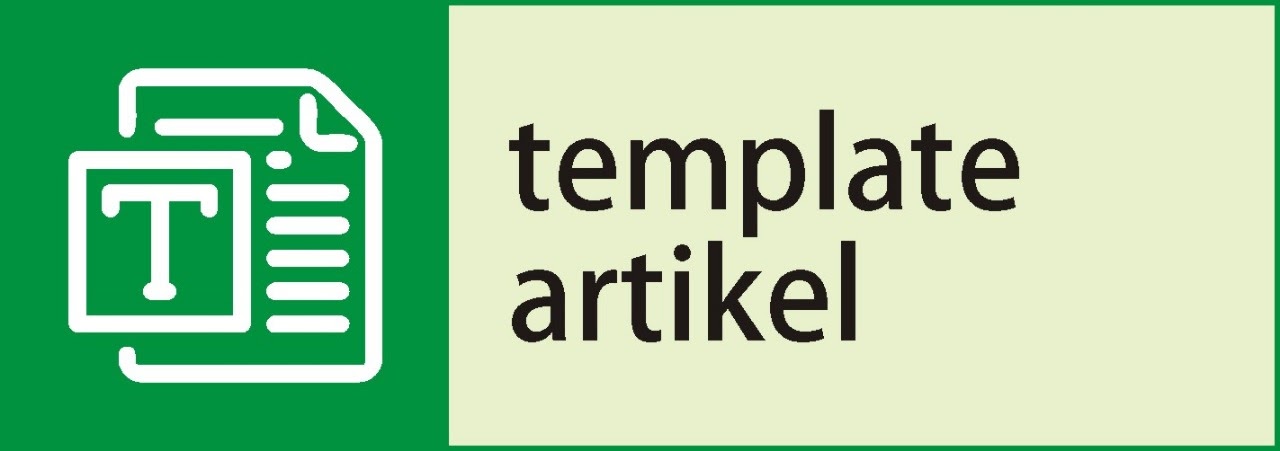Analisis Breastfeeding Self-efficacy pada Ibu Menyusui
DOI:
https://doi.org/10.58185/j-mestahat.v2i1.84Keywords:
Self-efficacy, breastfeeding, ASI eksklusif, ibuAbstract
Cakupan ASI eksklusif di Indonesia berada pada angka 66,06%. Cakupan di Kota Bogor dan Bekasi masih di bawah angka nasional. Breastfeeding Self-efficacy merupakan prediktor pemberian ASI eksklusif. Tujuan penelitian ini untuk mengetahui determinan breastfeeding self-efficacy di Kota Bogor dan Bekasi. Desain studi cross sectional digunakan pada 80 ibu menyusui yang diperoleh secara incidental sampling. Ibu mengisi sendiri kuesioner online yang disebar oleh tim peneliti selama bulan September-Oktober 2021. Hasil penelitian terdapat hampir separuh responden (48,8%) memiliki breastfeeding self-efficacy yang rendah. Tidak terdapat hubungan antara pengetahuan, pengalaman menyusui, pengamatan orang lain dan persuasi verbal suami dengan breastfeeding self-efficacy ibu (p value > 0,05). Breastfeeding self-efficacy sebaiknya dideteksi lebih dini pada saat kehamilan agar ibu yang berisiko terhadap kegagalan dalam memberikan ASI eksklusif dapat segera diberikan intervensi yang tepat.
Downloads
References
Ansari, S., Abedi, P., Hasanpoor, S., & Bani, S. (2014). The Effect of Interventional Program on Breastfeeding Self-Efficacy and Duration of Exclusive Breastfeeding in Pregnant Women in Ahvaz, Iran. International Scholarly Research Notices, 2014, 1–6. https://doi.org/10.1155/2014/510793
Badan Pusat Statistik (BPS). (2019). Profil Statistik Kesehatan 2019. In Badan Pusat Statistik Indonesia. Jakarta.
Balitbangkes Kementerian Kesehatan RI. (2018). Laporan Riskesdas 2018. In Laporan Nasional Riskesdas 2018.
Bandura, A. (1977). Self-efficacy: Toward a Unifying Theory of Behavioral Change. Psychological Review, 84(2), 191–215. https://doi.org/10.1007/978-3-319-75361-4
Bandura, A. (1994). Self-Efficacy. Encyclopedia of Human Behavior, Vol. 4, pp. 71–81. https://doi.org/10.1016/B978-0-08-097086-8.25033-2
Dennis, C.-L. (1999). Theoretical Underpinnings of Breastfeeding Confidence: A Self-Efficacy Framework. Journal of Human Lactation, 15(3), 195–201. https://doi.org/10.1177/089033449901500303
Dennis, C.-L. E. (2006). Identifying Predictors of Breastfeeding Self-Efficacy in the Immediate Postpartum Period. ResearchinNursing&Health, 29, 256–268. https://doi.org/DOI: 10.1002/nur.20140
Dennis, C. (2003). The Breastfeeding Self‐Efficacy Scale: Psychometric Assessment of the Short Form. Journal of Obstetric, Gynecologic & Neonatal Nursing, 32(6), 734–744. https://doi.org/10.1177/0884217503258459
Dinas Kesehatan Kota Bogor. (2019). Profil Dinas Kesehatan Kota Bogor Tahun 2019. Dinas Kesehatan Kota Bogor, 1689–1699. Retrieved from https://dinkes.kotabogor.go.id/dokumen
Dinas Kesehatan Provinsi Jawa Barat. (2019). Profil Kesehatan Jawa Barat Tahun 2019. Profil Kesehatan Jawa Barat Tahun 2019.
Dornan, L., Sinclair, M., Kernohan, G., Stockdale, J., Khuwuthyakorn, V., & Suppasan, P. (2015). Thai cultural influences on breastfeeding behaviour. Evidence Based Midwifery, 13(3), 84–91.
Fikawati, S., Syafiq, A., & Karima, K. (2015). Gizi Ibu dan Bayi (2nd ed.). Jakarta: Rajawali Press.
Gerhardsson, E., Hildingsson, I., Mattsson, E., & Funkquist, E.-L. (2018). Prospective questionnaire study showed that higher self-efficacy predicted longer exclusive breastfeeding by the mothers of late preterm infants. Acta Paediatrica, International Journal of Paediatrics, 107(5). https://doi.org/10.1111/ijlh.12426
Handayani, L., Kosnin, A. M., Jiar, Y. K., & Solikhah, . (2013). Translation and Validation of Breastfeeding Self-Efficacy Scale-Short Form (BSES-SF) into Indonesian: a Pilot Study. Jurnal Kesehatan Masyarakat (Journal of Public Health), 7(1), 21–26. https://doi.org/10.12928/kesmas.v7i1.1023
Jama, N. A., Wilford, A., Masango, Z., Haskins, L., Coutsoudis, A., Spies, L., & Horwood, C. (2017). Enablers and Barriers to Success among Mothers Planning to Exclusively Breastfeed for Six months: A Qualitative Prospective Cohort Study in KwaZulu-Natal, South Africa. International Breastfeeding Journal, 12(1), 1–13. https://doi.org/10.1186/s13006-017-0135-8
Monica, & Agustina. (2019). Gambaran Tingkat Self-efficacy Menyusui pada Ibu Hamil Trimester III dalam Kesiapan Pemberian ASI Eksklusif di Puskesmas Tanah Sareal Kota Bogor Tahun 2019. Retrieved from http://repository.poltekkesbdg.info/items/show/2411
Nursan, C., Dilek, K., & Sevin, A. (2014). Breastfeeding Self-effi cacy of Mothers and the Affecting Factors. Aquichan, 14(3), 327–335. https://doi.org/10.5294/aqui.2014.14.3.5
Presiden RI. (2012). Peraturan Pemerintah Republik Indonesia Nomor 33 Tahun 2012 Tentang Pemberian Air Susu Ibu Eksklusif. Jakarta, Indonesia.
Sari, D. N. A., Adi, G. S., Fiana, M., & Hanafi, N. (2019). Faktor Yang Mempengaruhi Breasfeeding Self Efficacy (BSE) Dalam Pemberian ASI Eksklusif Pada Ibu Hamil Trimester 3. Indonesian Journal of Nursing Practices, 3(1), 22–27. Retrieved from http://journal.umy.ac.id/index.php/ijnp
Shiraishi, M., Matsuzaki, M., Kurihara, S., Iwamoto, M., & Shimada, M. (2020). Post-breastfeeding stress response and breastfeeding self-efficacy as modifiable predictors of exclusive breastfeeding at 3 months postpartum: a prospective cohort study. BMC Pregnancy and Childbirth, 20(1), 1–10. https://doi.org/10.1186/s12884-020-03431-8
Statistics Indonesia (BPS), National Population and Family Planning Board (BKKBN), & Ministry of Health (Kemenkes). (2017). Indonesia 2017 DHS. Retrieved from https://dhsprogram.com/pubs/pdf/FR342/FR342.pdf
Titaley, C. R., Dibley, M. J., Ariawan, I., Mu’asyaroh, A., Alam, A., Damayanti, R., … Fahmida, U. (2021). Determinants of low breastfeeding self-efficacy amongst mothers of children aged less than six months: results from the BADUTA study in East Java, Indonesia. International Breastfeeding Journal, 16(1), 1–16. https://doi.org/10.1186/s13006-021-00357-5
Wardiyah, A., Arianti1, L., & Agitama, N. N. (2019). Faktor Breastfeeding Self Efficacy (BSE) Pada Ibu Post Partum di wilayah Kerja Puskesmas Sumur Batu, Bandar Lampung. Jurnal Dunia Kesmas, 8(March), 139–150.
WHO. (2011). Exclusive Breastfeeding for Six Months Best for Babies Everywhere. Retrieved from https://www.who.int/news/item/15-01-2011-exclusive-breastfeeding-for-six-months-best-for-babies-everywhere
Zakiah, Rasyad, A. S., & Sujatno, H. R. M. (2012). Efikasi Diri Dan Lama Pemberian Air Susu Ibu Saja Selama 2 Bulan Postpartum. Gaster, 9(2), 7–16.














